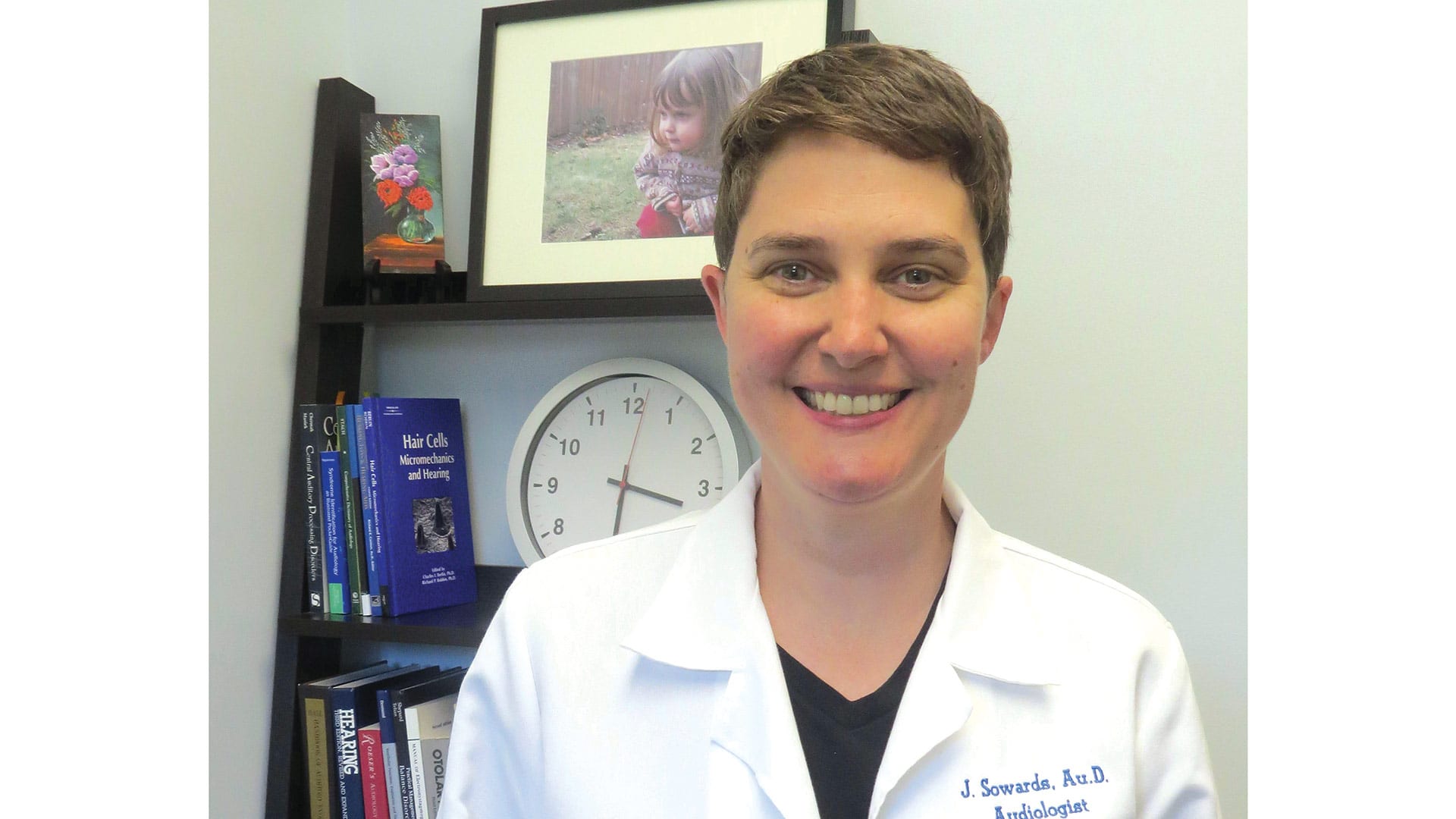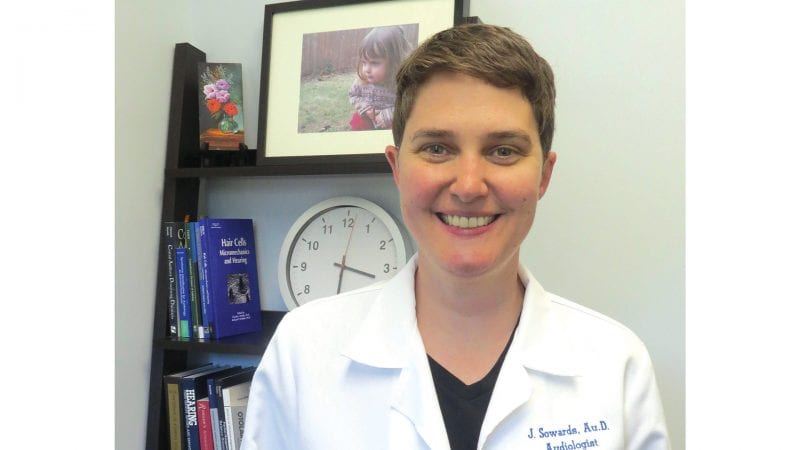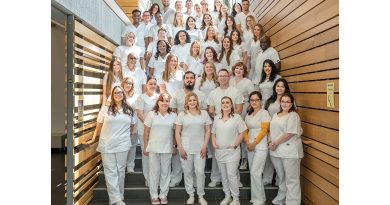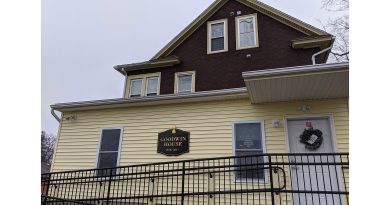Florence Hearing Health Care
Return to In-person Visits Amplifies Importance of Good Hearing
Everyone knows that wearing masks in public helps prevent the spread of COVID-19. But they may not realize masks can cause problems for people with hearing loss.
Dr. Jennifer Sowards, founder and audiologist with Florence Hearing Health Care, said she appreciates the importance of wearing masks, but it’s difficult for people who are hard of hearing because they depend on reading a person’s lips to understand what they’re saying.
“Most people don’t even realize how much they supplement with lip reading until they can’t get that line of sight because of a mask,” she said.

As she prepares to reopen her office for in-person appointments, Sowards has stocked up on a special type of personal protective equipment (PPE). “We’ve ordered masks that have a clear plastic window so patients can see the clinician’s mouth and be able to lip read.”
Known as the Communicator Mask, the product’s website notes that the mask is FDA-approved and specifically designed for use with patients with hearing loss.
For people who wear over-the-ear hearing aids, face masks bring another challenge. Sowards explained that the ear loops on many face masks can easily grab an over-the-ear hearing aid and pull it off, leading to many frantic calls from her patients. “If they don’t realize their hearing aid came off and pick it up right away, it’s easy for people to lose them simply because of all the on and off of face masks.”
When stay-at-home orders were imposed in March, Sowards stopped in-person appointments to protect patients and staff and began offering no-contact, curbside service. This way, patients can safely drop off hearing devices that need service in a lockbox at the front entrance. For quick repairs, patients can wait in their cars until they receive a call to safely retrieve their repaired devices.
“We offer curbside service because devices can fail and our hearing is essential, especially in the era of masks where people can’t read lips,” she said.
“So many of our patients are elderly, the most vulnerable population to the virus, so we want to make sure we keep them safe. We’re planning on having our staff practice ahead of time to make sure all our mitigation practices are in place once we reopen.”
Going forward, Sowards will encourage patients to take advantage of curbside service for regular “clean and check appointments” rather than going into the office. At the same time, if someone is noticing a hearing loss for the first time or their hearing has changed, they shouldn’t hesitate to come in for evaluation.
Even if health officials eventually relax the mandate about wearing masks, Sowards said she and her staff will continue to wear them at all times for everyone’s protection. “There’s no reason for anyone to be in our office without a mask. If a patient doesn’t have one, or if it looks tattered, we will offer them a new mask.”
Working closely with patients to clean out ear wax or perform other routine procedures can often stimulate a nerve in the inner ear, causing the patient to involuntarily cough. For that reason, she and her staff will wear face shields to protect themselves and patients.
The current layout of the office lends itself to conforming with the new guidelines for patient safety, or, as Sowards said, “we got lucky.” Because the space was formerly a pediatrician’s office, a sliding glass window was already in place to separate the front desk from the waiting room. Also, when patients have their hearing examined, they sit in a sound booth, separated from where the clinician is working.
Those lucky breaks aside, Sowards said her staff is focused on getting all the new protocols right.
“So many of our patients are elderly, the most vulnerable population to the virus, so we want to make sure we keep them safe,” she told HCN. “We’re planning on having our staff practice ahead of time to make sure all our mitigation practices are in place once we reopen.”
As they prepare to reopen, a significant number of people are calling the office after noticing hearing loss for the first time. Sowards suspects that, for many, this loss might have existed for a while, and they compensated for it by reading lips or moving closer to the person speaking. With masks and social distancing, that’s no longer possible.
“As things start to reopen, it will be daunting to be out and about with a hearing loss,” she said. “If someone has noticed a change in their hearing, it’s important they get it evaluated.”
—Mark Morris



